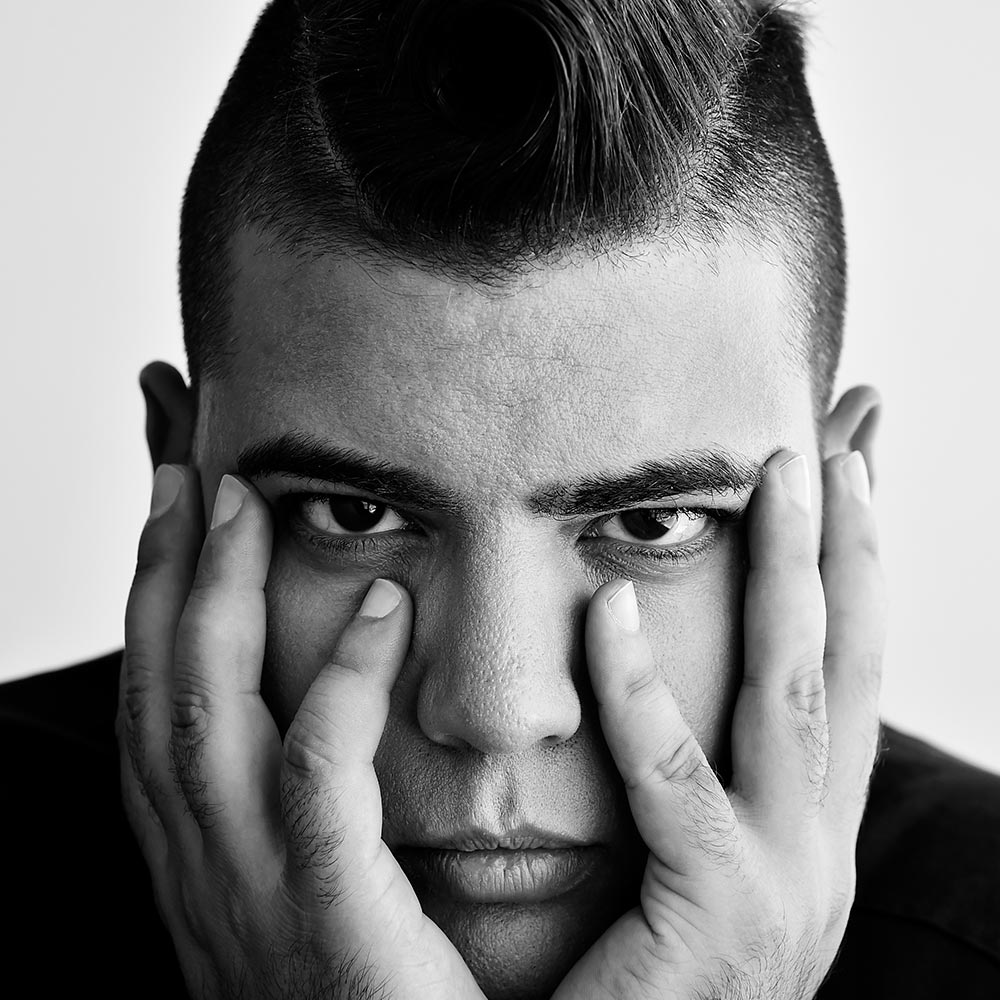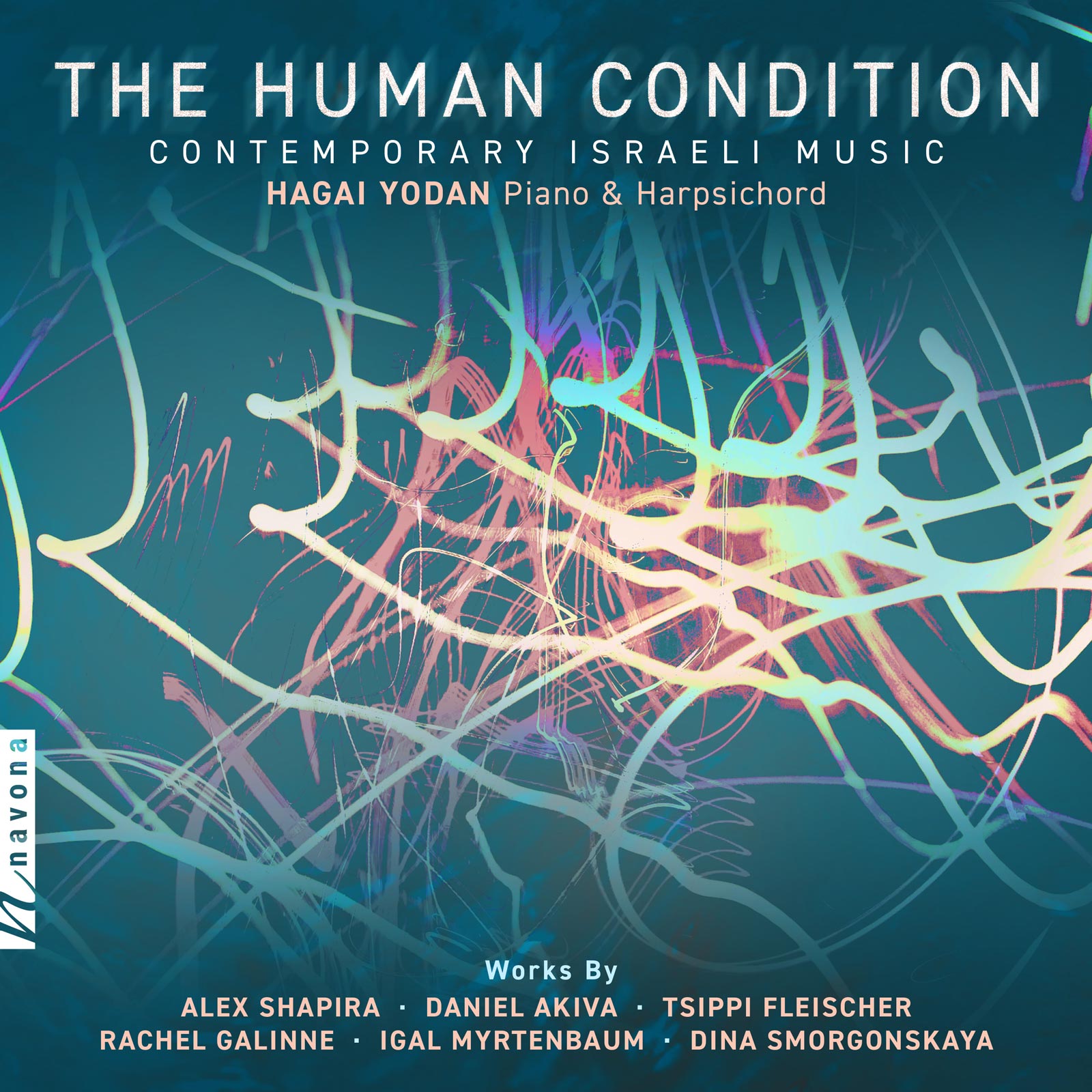
Nothing has ever gripped intellectuals as firmly as reflections about the conditio humana, with all the perceptions, joys and miseries it entails. Israeli pianist and prolific recording artist Hagai Yodan sounds the depths of existence on his new release, THE HUMAN CONDITION, and with great panache.
Today, Hagai is our featured artist in the “Inside Story,” a blog series exploring the inner workings and personalities of our composers and performers. Read on to learn about his and his fascination with black holes, cosmology, and quantum mechanics…
What have been your biggest inspirations on your musical journey?
Inspirations are everything and everywhere! Mostly, they are in the reflections of the outside world that are present within us. I’ve always found that ideas, notions, and epiphanies simply “come to be” in my head and heart, as if from thin air. This happens, of course, after I absorb sounds, colors, and concepts from around me. My biggest source of inspiration is music itself — its different “personalities” and many shades. From it, I can draw my creative map and the trails that lead me from one artistic destination to the next.
What emotions do you hope listeners will experience after hearing your work?
Emotions are abstract and subjective entities, and so the “rainbow” of feelings one can experience is endless. When I play, the audience — which I of course love, respect and am grateful toward (and for) — are not a musical consideration: if I can achieve my vision for the piece, then the listener will surely be moved in some way, and maybe not in the same way as me. I’m also not fearful of dislike or criticism which may arise regarding the performance — all of these are natural and healthy in my view.
Where and when are you at your most creative?
Most creative ideas which make me really excited come when I’m doing “nothing.” Of course, one never does “nothing” as our minds never cease thinking and processing. “Being” is not opposed to “doing” — they are two sides of the same coin as it were. When these ideas appear, I immediately know I’m onto something! It’s great fun!
How do you prepare for a performance?
Preparing a piece, for me, is all about the “prima vista:” the first time of reading the score. I find that the initial instincts that come with discovering the text usually turn out to be the most “true” and deep. These instincts are based on experience, understanding of style, and my own mannerisms. In the end, though all-encompassing, music has its own set of patterns which repeat throughout the repertoire, varying slightly or greatly. When one has an understanding of these patterns, one can interpret them in different ways. Thus, Early, Classical, Romantic, and Contemporary music and other genres are, for me, the same. Practically, I do not write down anything in the score — not fingerings nor other performance notes. If I don’t know how I’m going to play the piece without “reminder stickers,” then I don’t know the piece at all.
Playing a live performance and recording in the studio differ methodologically, but ultimately must balance two main elements: the vision for the piece as a whole and the tiny nuances, both having the same significance. These are what might make a performance a great one.
What advice would you give to your younger self if given the chance?
Know that your instincts and intuition are your greatest strengths. In my early years I perhaps felt the need to rebel against conformities and axioms of music-making: now I can see clearly that I wasn’t going “against,” but going “with” with my inner truth. Some 20 years later, as I matured as a human and as a musician, things are more balanced and nuanced, but I wouldn’t have made it to this point without that wild, necessary phase.
What are your other passions besides music?
If I weren’t a musician, I think I would be a scientist; and specifically I’m most passionate about physics. There’s something both terrifying and magical about trying to understand the forces which govern our universe — from the tiniest building blocks of the cosmos to the gigantic, massive objects that are embedded within its fabric. Our understanding of the world, as a species, is ever deepening, but also never full. Maybe that’s why I find it so appealing. The road to knowing everything is a never-ending one and, most likely, we’ll never be able to see the whole picture. Black holes, cosmology, and quantum mechanics are my favorite subjects!

Hagai Yodan (b. 1985) is an Israeli pianist, vocalist, harpsichordist, and composer. His repertoire spans from early music to contemporary pieces, and he has collaborated with nearly 300 different composers.

